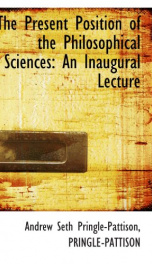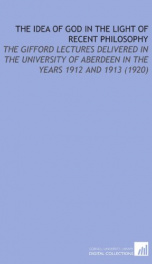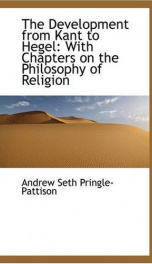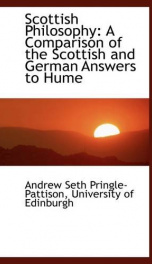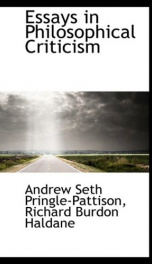hegelianism and
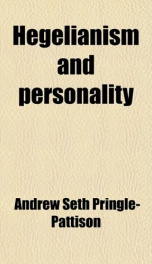
Purchase of this book includes free trial access to www.million-books.com where you can read more than a million books for free. This is an OCR edition with typos. Excerpt from book: APPENDIX TO LECTURE I. Though it is hardly, perhaps, an integral part of the present argument, it seems natural to connect Kant's refusal to substitute for the real self a purely logical or formal unity with his refusal to identify the reality of the external world with mere relations. Kant's doctrine of things-in-themselves, as ordinarily understood, I cannot but hold to be fundamentally false, and a fruitful source of error;l but it does not therefore follow that the whole external world is nothing more than a complex of thought-relations. There seems no reason why, if we resolve the rest of the external world in this way, we should not reduce our fellow-men also to mere complexes of relations, which have no existence on their own account. For our fellow-men are given to us, in the first instance, as part of the external world; and it would seem as if the same reasons which make us assign to them an existence on their own account, and not as mere objects either of our own or of a supposed universal consciousness, should lead us to attribute an (at least analogously) independent existence to the external world, or at any rate to certain existences in it. Kant himself, after the promulgation of his Critical system, was resolutely averse to speculation beyond certain limits ; but there are indications in his writings that, if indulged, his speculations would have led him in a Leibnitian direction, as was indeed natural in the case of one who had been reared andhad passed a great part of his life within that school. If this be taken as the idea underlying his assertion of things-in-themselves, it may be readily admitted that much of the objectionableness of that doctrine would disappear. 1 The fifth lecture of the previous course was chiefly devoted to combating the doctrine o...
Info about the book
Author:
Series:
Unknown
ISBN:
1290051011
Rating:
3/5 (4)Your rating:
0/5
Languge:
English
Users who have this book
Users who want this book
What readers are saying
What do you think? Write your own comment on this book!
write a commentif you like hegelianism and try:
Do you want to read a book that interests you? It’s EASY!
Create an account and send a request for reading to other users on the Webpage of the book!
